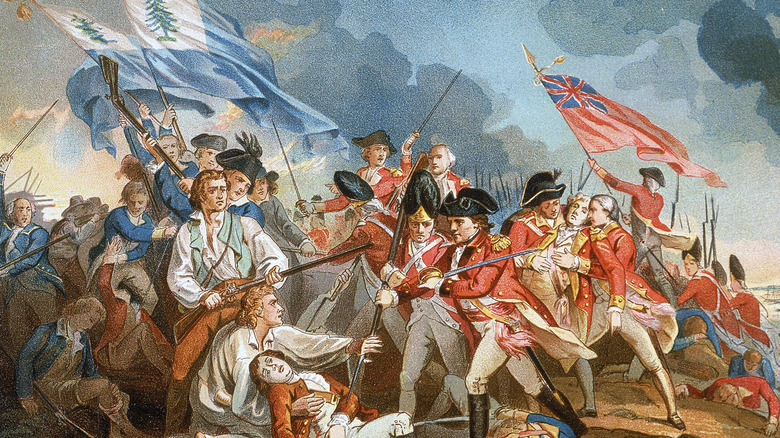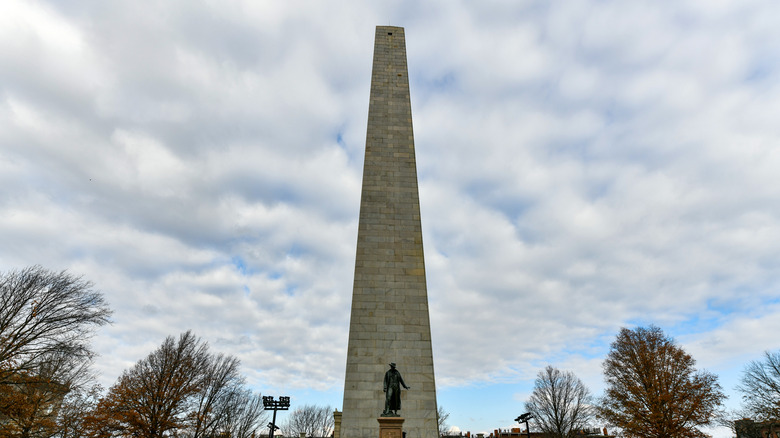Who Won The Battle Of Bunker Hill?
On June 17, 1775, the Battle of Bunker Hill took place after the engagements at Lexington and Concord, and the colonial rebels wanted to keep the British troops contained in Boston, Massachusetts, per American Battlefield Trust. Colonel William Prescott was ordered to take his colonial fighters and occupy Bunker Hill, but Prescott and others decided to reroute the troops to Breed's Hill instead, according to the Massachusetts Historical Society. Why the change of plan? That's unclear, but historian Nathaniel Philbrick thinks it was "not the smartest move militarily," via Smithsonian Magazine. So oddly enough, Bunker Hill wasn't really the main location in the battle that bears its name, according to History.
On the night of June 16, the colonists worked on securing Breed's Hill, putting up fortifications to protect their position and to thwart a British attack. They were still at it the following morning when the British started firing on them from ships in Boston Harbor. By the afternoon, British soldiers — approximately 2,000 of them — under the command of General William Howe marched toward Breed's Hill, via Massachusetts Historical Society.
The British win a costly victory
The British emerged victorious in the Battle of Bunker Hill, but they paid a high price for this win. The first wave of British soldiers fell like dominoes as they approached the colonists. The colonial fighters were told to hold their fire until the British soldiers were about 50 yards away, according to Smithsonian Magazine. The British retreated to regroup, and they launched several more attacks on colonists. Late in the battle, the colonists had run low on ammunition and resorted to using rocks and the ends of their guns as weapons, stated Massachusetts Historical Society. The colonists were forced to retreat, and the last few on the hill were aided in their escape by the efforts of Peter Salem, an African American soldier, who shot the British officer commanding the final charge, according to the Library of Congress.
In the end, roughly half the British soldiers involved in this battle were wounded or killed, per the Library of Congress. The colonists weren't hit as hard, losing 115 men and having 305 soldiers wounded, as noted by the American Battlefield Trust. British General Henry Clinton described the battle as "a dear bought victory," which left the British low on troops in Boston and contributed to their later decision to leave the city, via American Battlefield Trust. The colonial rebels, despite their defeat, pressed on with their struggle for freedom, and George Washington came to Massachusetts two weeks after the battle to take charge of the Continental Army.

